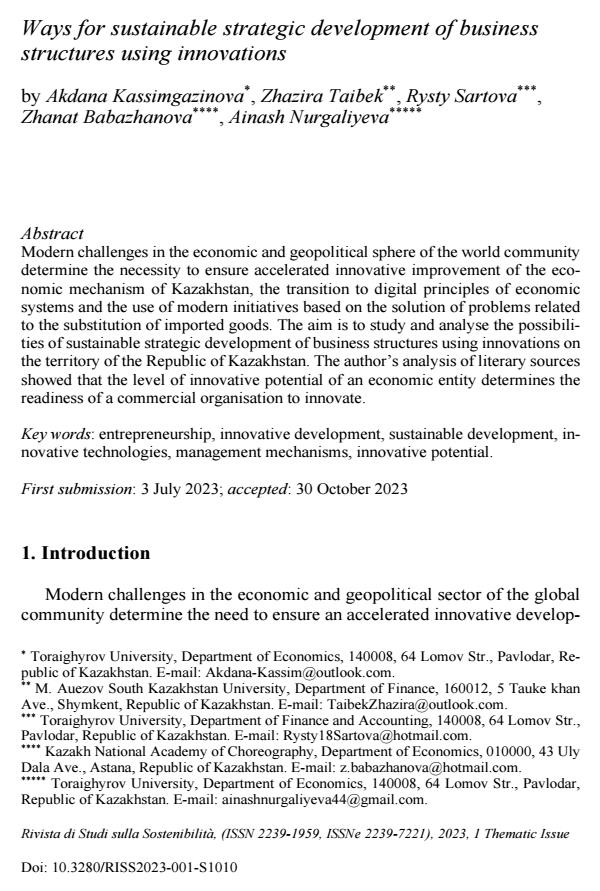Ways for sustainable strategic development of business structures using innovations
Titolo Rivista RIVISTA DI STUDI SULLA SOSTENIBILITA'
Autori/Curatori Akdana Kassimgazinova, Zhazira Taibek, Rysty Sartova, Zhanat Babazhanova, Ainash Nurgaliyeva
Anno di pubblicazione 2023 Fascicolo 2023/1 T.
Lingua Inglese Numero pagine 16 P. 151-166 Dimensione file 116 KB
DOI 10.3280/RISS2023-001-S1010
Il DOI è il codice a barre della proprietà intellettuale: per saperne di più
clicca qui
Qui sotto puoi vedere in anteprima la prima pagina di questo articolo.
Se questo articolo ti interessa, lo puoi acquistare (e scaricare in formato pdf) seguendo le facili indicazioni per acquistare il download credit. Acquista Download Credits per scaricare questo Articolo in formato PDF

FrancoAngeli è membro della Publishers International Linking Association, Inc (PILA), associazione indipendente e non profit per facilitare (attraverso i servizi tecnologici implementati da CrossRef.org) l’accesso degli studiosi ai contenuti digitali nelle pubblicazioni professionali e scientifiche.
Modern challenges in the economic and geopolitical sphere of the world community determine the necessity to ensure accelerated innovative improvement of the eco- nomic mechanism of Kazakhstan, the transition to digital principles of economic systems and the use of modern initiatives based on the solution of problems related to the substitution of imported goods. The aim is to study and analyse the possibili- ties of sustainable strategic development of business structures using innovations on the territory of the Republic of Kazakhstan. The author’s analysis of literary sources showed that the level of innovative potential of an economic entity determines the readiness of a commercial organisation to innovate.
Parole chiave:entrepreneurship, innovative development, sustainable development, in- novative technologies, management mechanisms, innovative potential.
Akdana Kassimgazinova, Zhazira Taibek, Rysty Sartova, Zhanat Babazhanova, Ainash Nurgaliyeva, Ways for sustainable strategic development of business structures using innovations in "RIVISTA DI STUDI SULLA SOSTENIBILITA'" 1 T./2023, pp 151-166, DOI: 10.3280/RISS2023-001-S1010